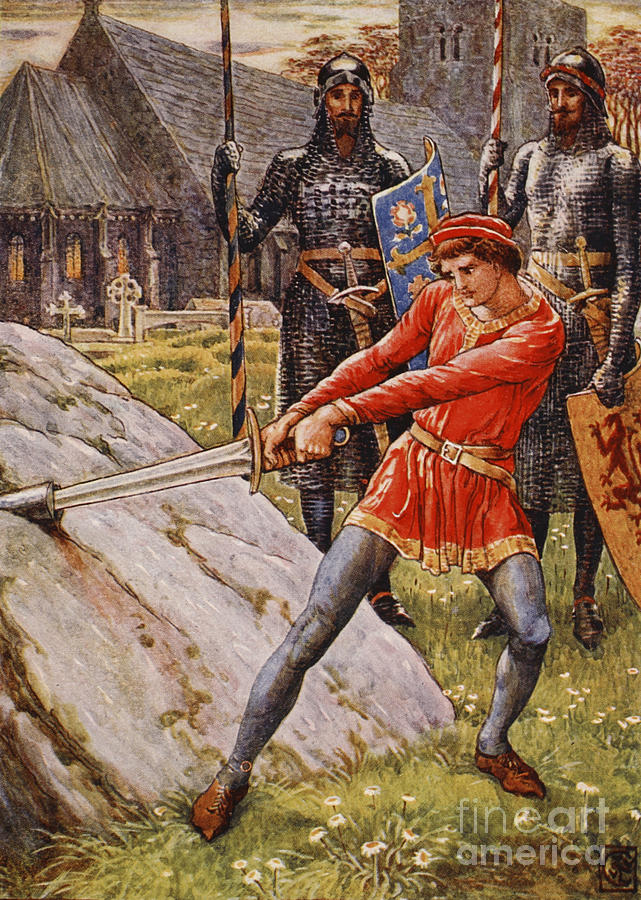Arthur’s Humble Origins as King in Malory’s “Merlin”
By: Emily Wright
The origins of King Arthur’s reign as revealed by Sir Thomas Malory in Merlin, a tale from his composition of Arthurian stories called Le Morte Darthur, is one that offers an interesting portrayal of Arthur as a young boy not yet ready for the power that comes with being a king. While King Arthur and the Knights of the Round Table to general audiences and pop culture are known as strong, fearless knights who face glory in battle and are praised for their skill and courage, Arthur in Merlin comes into his position as King demonstrating a level of humility, and even reluctance, that is rather unexpected. More specifically, Malory portrays the act of Arthur removing the sword from the stone as one of passive generosity, opposed to hopeful bravery. The tale of the sword in the stone is one that has been carried throughout history as a symbol of gaining worthiness and honor, and one without knowledge of Malory’s stories would expect that Arthur’s removal of the sword from the stone was an act of intentional courage that prompted immediate glory. Common depictions of this scene, such as the painting by Walter Crane seen below, portray Arthur drawing the sword from the stone with strength and determination, while knights look on in shock.

In Merlin, however, Arthur removes the sword not for himself, but for his brother, who had forgotten his own sword and needed one to participate in a tournament. Arthur states, “I will ride to the churchyard and take the sword with me that sticketh in the stone, for my brother Sir Kay shall not be without a sword this day” (Malory 10). Arthur’s motivations for retrieving the sword consisted of a desire to obtain glory for his brother, not once did he think of himself or the implications of his ability to do something that so many others failed to do. The air of nonchalance in which Arthur presents the sword from the stone to his adoptive father and brother demonstrates how far this young boy is from the legendary king he will become. Additionally, when Sir Ector and Sir Kay recognize Arthur as their king, Arthur asks why his own father and brother kneel to him, and once he learns the answer, he expresses sorrow at the fact that Sir Ector was not his father. Arthur’s actions are mostly out of a lack of understanding and acceptance as his position as king – he does not think of his newfound power and status, but instead about the loss of a father figure. These humble, boyish origins are an interesting contrast to the mythical figure of knightly courage he will ultimately develop into.
Image Link: https://fineartamerica.com/featured/arthur-draws-the-sword-from-the-stone-walter-crane.html





